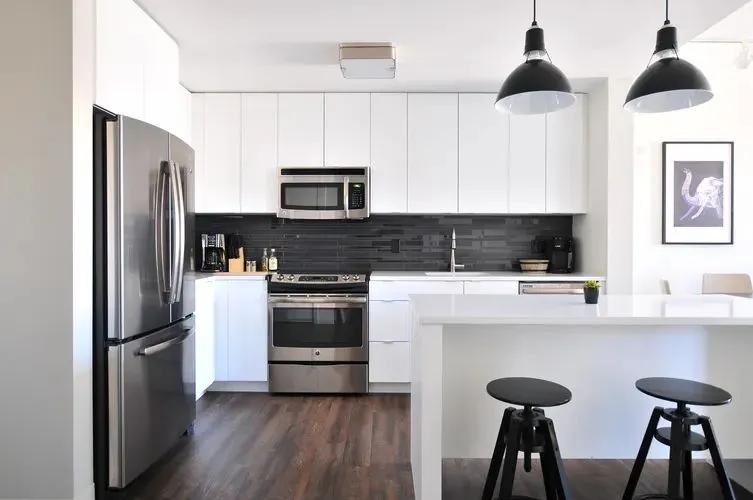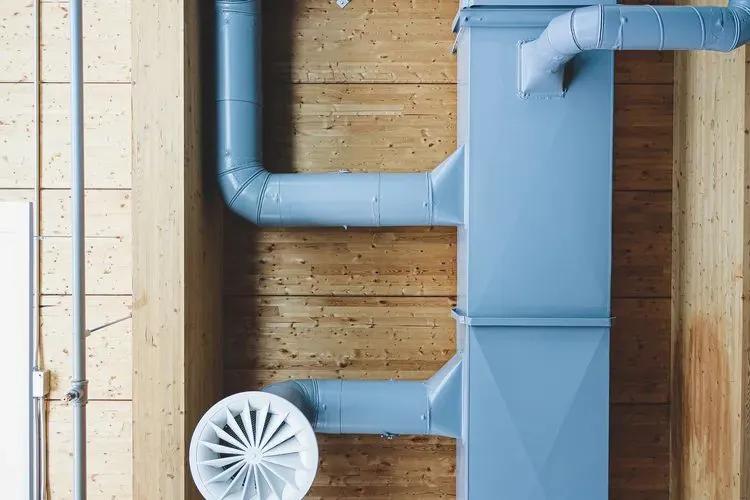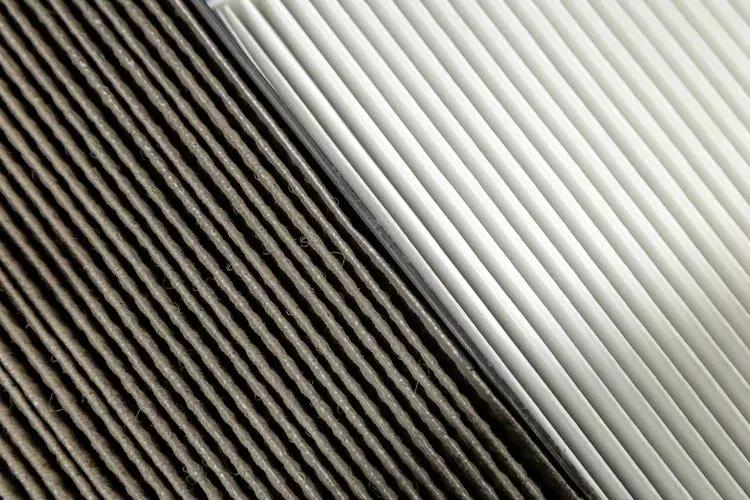Shop by

Modular homes are the future of the housing industry. They're eco-friendly, easy to construct, and, most importantly, affordable for anyone interested in buying a new home. Modular homes are the perfect combination of traditional with a hint of the helpful technology.
Equipping a modular home is more-less the same as with any other home. You need your everyday gadgets, and one of them is the HVAC system. If you need professional installation, repair, or duct cleaning designed for modular layouts, Filterbuy HVAC Solutions is ready to help. We also have the exact replacement filters your equipment requires.
Let's say you've invested in a modular home in the sunny state of Florida, and you know how summers there can be – too hot to bear sometimes. You need an HVAC system to help you get through the hot and cold seasons wherever your modular home is situated. However, you need to ensure that your system is working properly and you're not missing any signs that may cause a problem.

To help you notice the signs and take proper care of your HVAC system, here's a list of potential problems and troubleshooting tips for modular homeowners.
Installing an HVAC system in a modular home can be tricky. Limited crawl-space access and under-floor duct runs create unique risks. Below are the issues most owners encounter.
The first, and perhaps the most common problem with these air conditioning systems is that the ductwork is worn out. This is due to space constraints that follow modular homes. If you've invested in a modular home, then you probably have ducts that run underneath your home instead above it, like with traditional ones. Although it's a smart system, it does make your ductwork more prone to damage, such as debris and leaves.
Worn-out ductwork can be caused by various factors, including age, poor installation, damage from pests, and wear and tear from exposure to the elements. Modular homes may be more susceptible to these issues due to the nature of the construction process and the materials used. Additionally, when the weather is not at its best, all this dirt and leaves can create a blockage, damaging the metal frames, which then takes a toll on the entire heating-cooling system.

Signs of worn-out ductwork include poor airflow, uneven heating or cooling, excessive dust or debris in the home, and strange smells or noises coming from the ductwork. If you notice these issues, it's important to have the ductwork inspected by a qualified HVAC technician. If you notice any of these signs in your modular home, you should consider getting your ductwork replaced. Worn-out ductwork can cause the HVAC system to work harder to maintain a comfortable temperature, leading to increased energy usage and higher utility bills. It can also cause uneven heating or cooling, with some rooms too hot or cold.
Worn-out ductwork can allow dust, debris, and other contaminants to enter the home, leading to poor indoor air quality. This can be especially problematic for people with allergies or respiratory issues. In some cases, worn-out ductwork can pose a safety hazard if it allows gas or other harmful substances to enter the home. It's important to inspect the ductwork regularly to ensure it is in good condition.
Depending on the extent of the damage, worn-out ductwork may be able to be repaired or may need to be replaced entirely. A qualified HVAC technician can inspect the ductwork and recommend the best action.
Filterbuy HVAC Solutions can camera-scope under-floor ducts, seal minor leaks immediately, and if needed, replace damaged sections, restoring airflow and lowering energy use.
A modular home, just like any other home, requires a lot of work and dedication from your side, so forgetting something is common. There's one thing that we can all agree on, though – homeowners often forget to change their air filters. Clogged air filters can be a common HVAC problem in modular homes that can cause issues with heating and cooling efficiency, indoor air quality, and overall system performance. Here are some things to know about clogged air filters in a modular home:
Although it usually goes unnoticed by the homeowner, filters are critical to every air conditioning system. Their role is pretty simple — they ensure that the air in and out is free of everything harmful to the home's residents.
Clogged air filters are usually caused by a buildup of dust, dirt, and other debris in the filter. This can be due to various factors, including poor indoor air quality, pet hair and dander, and inadequate filter maintenance. Signs of a clogged air filter include reduced airflow from the vents, uneven heating or cooling, increased energy usage, and decreased overall system performance. Sometimes, you may notice more dust or debris in the home or experience worsening allergy or asthma symptoms.
Clogged air filters can cause the HVAC system to work harder to maintain a comfortable temperature, leading to increased energy usage and higher utility bills. It can also cause the system to wear out more quickly, leading to the need for more frequent repairs or replacements. Additionally, clogged air filters can allow dust, debris, and other contaminants to circulate throughout the home, leading to poor indoor air quality. This can be especially problematic for people with allergies or respiratory issues.
Regular filter maintenance is key to preventing clogged air filters and ensuring optimal HVAC performance. This includes regularly replacing the filter according to the manufacturer's recommendations and cleaning or replacing the filter more frequently if you have pets or live in a particularly dusty or polluted area.
Enroll in Filterbuy’s auto-delivery service so fresh, perfectly sized filters arrive every 90 days—no last-minute store runs or guesswork.
Debris and dust that have been collected in and clogged up your air conditioner filter pose a serious threat to your health, and that's why this issue shouldn't be overlooked.
Just assuming the air filter size you need won’t cut it. You need to consider other measurements, the most important one being the size of your home. This is where the problem arises actually – homeowners often buy either a too-big or a too-small HVAC system. Using the wrong size air filter in a modular home can cause issues with heating and cooling efficiency, indoor air quality, and overall system performance.
Using the wrong size air filter can be due to various factors, including poor installation, incorrect sizing, or a lack of knowledge about the right filter size. Signs of using the wrong size air filter include reduced airflow from the vents, uneven heating or cooling, increased energy usage, and decreased overall system performance. Sometimes, you may notice more dust or debris in the home or experience worsening allergy or asthma symptoms.
Schedule load calculation with Filterbuy HVAC Solutions to ensure your modular system and its filters are sized correctly from day one.

Using the wrong size air filter can cause the HVAC system to work harder to maintain a comfortable temperature, leading to increased energy usage and higher utility bills. It can also cause the system to wear out more quickly, leading to the need for more frequent repairs or replacements. Using the wrong size air filter can allow dust, debris, and other contaminants to circulate throughout the home, leading to poor indoor air quality. This can be especially problematic for people with allergies or respiratory issues.
Using the right size air filter ensures optimal HVAC performance and indoor air quality. The filter size is typically specified by the manufacturer and can vary depending on the size and type of the HVAC system. If you need clarification on the right size air filter to use in your modular home, it's important to consult with a qualified HVAC technician. They can help you select the right filter size and type for your HVAC system and indoor air quality needs.
Modular homes often have tighter building envelopes than site-built houses, so trapped moisture becomes a bigger risk. High indoor humidity (above 50 percent) encourages mold growth and forces your HVAC to run longer. Keep relative humidity between 30% and 50% and install a whole-house dehumidifier or an energy-recovery ventilator (ERV) to introduce fresh air without wasting energy. Filterbuy HVAC Solutions can integrate either upgrade into your existing system and fine-tune the controls for year-round comfort.
Although having an HVAC brings some major advantages to your modular home, you should be aware of the red flags that can occur as well. The key to having an HVAC system that lasts for years is being able to notice and fix certain problems.
If you've noticed certain red flags in your HVAC for manufactured homes, here are some troubleshooting tips that'll help you save your home and its residents.
The outside HVAC unit for a modular home is an essential component of the HVAC system responsible for transferring heat or cool air into and out of the home. The outside HVAC unit is typically on a concrete slab or a metal stand. It is typically placed in a location that allows for proper air circulation and easy access for maintenance and repairs.
The outside HVAC unit consists of several components, including the compressor, the condenser coil, the fan, and the refrigerant lines. The compressor compresses the refrigerant and pumps it through the system, while the condenser coil releases the heat from the refrigerant. The fan blows air over the condenser coil to cool it down. The refrigerant lines connect the indoor and outdoor units and transport the refrigerant between them.
If your modular home has an outside unit, you must monitor the equipment and regularly maintain the unit. Regular checks and weeding are necessary for your HVAC system to function properly. Maintenance is important to keep the outside HVAC unit in good condition and ensure optimal performance. This includes cleaning the coils and fan blades, checking the refrigerant levels, and inspecting the unit for damage or wear.
If the outside HVAC unit is not working properly, it may require repairs. This can include replacing damaged components, repairing refrigerant leaks, or addressing electrical issues.
The outside HVAC unit can have a significant impact on the energy efficiency of the HVAC system. Choosing a unit that is properly sized for the home and has a high SEER (Seasonal Energy Efficiency Ratio) rating can help reduce energy usage and lower utility bills.
Seal and insulate crossover ducts. Filterbuy HVAC Solutions offers under-home duct-sealing packages that cut energy loss. And book a spring or fall tune-up so our technicians can clean coils, verify refrigerant, and keep warranties valid.

Clogged filters pose a problem to the HVAC controls and other system equipment. Many homeowners need to remember that replacing their air filters is a task that needs to be done regularly. Clogged air filters are a common problem that can have a range of negative effects on the system's performance and indoor air quality.
Various factors, including dirty or dusty environments, lack of regular filter replacement, and the presence of pets or other sources of debris, can cause clogged air filters. Signs of a clogged air filter include reduced airflow from the vents, uneven heating or cooling, increased energy usage, and decreased overall system performance. Sometimes, you may notice more dust or debris in the home or experience worsening allergy or asthma symptoms.
Modular homeowners should avoid clogged filters at all costs because they can cause the HVAC system to work harder to maintain a comfortable temperature, leading to increased energy usage and higher utility bills. It can also cause the system to wear out more quickly, leading to the need for more frequent repairs or replacements. Clogged air filters can allow dust, debris, and other contaminants to circulate throughout the home, leading to poor indoor air quality. This can be especially problematic for people with allergies or respiratory issues.
Regular filter replacement ensures optimal HVAC performance and indoor air quality. The frequency of filter replacement depends on several factors, including the type of filter, the presence of pets, and the level of indoor air pollution. Choosing the right filter for your HVAC system can also have a significant impact on performance and indoor air quality. The filter should be sized properly for your system and have a MERV (Minimum Efficiency Reporting Value) rating appropriate for your needs.
Need help determining which MERV rating is best for your home? Our MERV Match Quiz can help you choose the perfect filter for your filtration needs. With just a few questions, we’ll match you with the ideal type of filter to match your home and lifestyle.
HAVE YOU MET YOUR MERV MATCH? TAKE THE QUIZ
If you want to begin taking better care of your modular home HVAC system, start with Filterbuy. Changing your air filter every 3 months is one of the healthiest things you can do for your HVAC system, home, and family. Air filters get clogged over time, leading to expensive fixes and replacement parts. Keeping a steady supply of clean air filters on hand can save you thousands of dollars in the long run and keep your HVAC system functioning as long as possible.
Filterbuy produces the highest quality made-in-U.S. air filters in 600+ sizes and across 3 MERV ratings. With our auto-delivery subscription program, you can get the highest quality U.S.-made air filters delivered to your door before you even need them. Start your subscriptions now and never be caught with clogged air filters in your modular home again. All U.S. orders ship free, and we make custom-size filters to fit any system! Find your size here.
Keep outdoor coils clean, change filters on schedule, seal any visible duct leaks, and have a qualified technician perform seasonal maintenance.
Sizing should be based on a professional load calculation (often called Manual J). Square-foot “rules of thumb” can oversize or undersize equipment, so rely on a calculation rather than estimates.
The term usually refers to equipment and ductwork that are factory-sized or shipped in sections to fit the tighter crawl spaces and floor cavities common in modular or mobile structures.
As of 2023, new central air-conditioners and heat pumps must meet the DOE’s SEER2 and HSPF2 requirements, with slightly higher SEER2 thresholds in southern states than in northern states.
Most use under-floor crossover ducts. These ducts should be insulated, supported off the ground, and sealed at joints to prevent energy loss and moisture intrusion.
Yes. Modern heat pumps are designed to operate efficiently across a wide temperature range and are commonly installed in factory-built housing.
Follow the manufacturer’s recommendation—typically every 90 days for standard pleated filters, or more often if you have pets or heavy dust.
Keep relative humidity between roughly 30% and 50% (EPA guideline). If moisture is high, consider adding a dehumidifier or an energy-recovery ventilator (ERV).
Look for licensed HVAC contractors familiar with under-floor duct systems. If you need installation, repairs, or duct sealing, Filterbuy HVAC Solutions provides these services nationwide, and Filterbuy supplies replacement filters in a wide range of sizes.